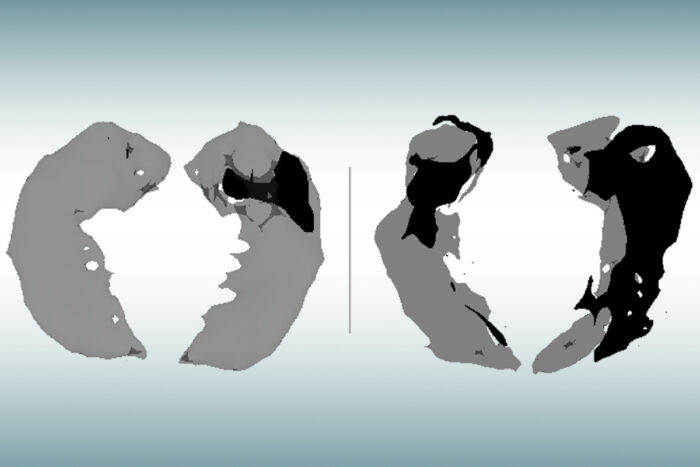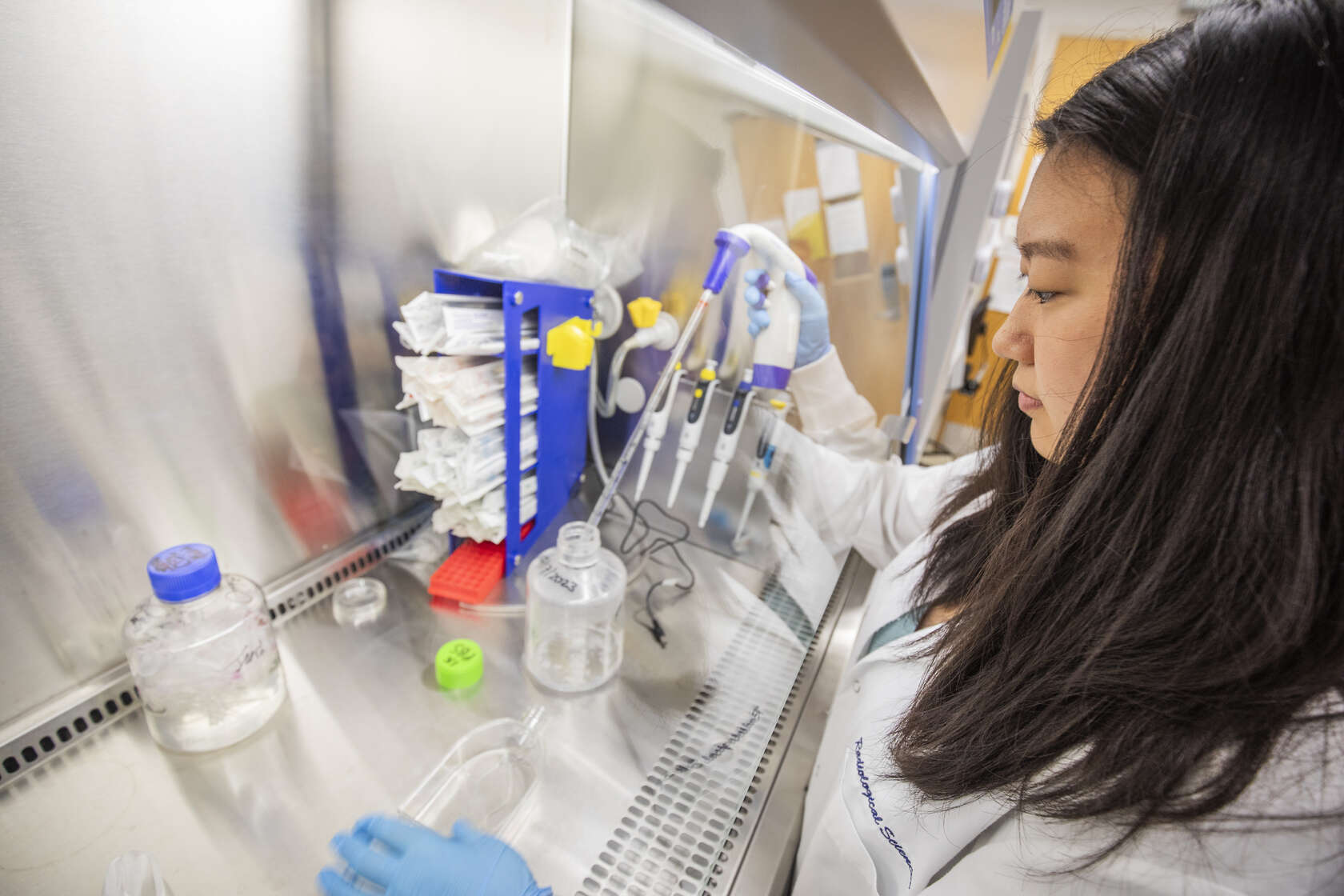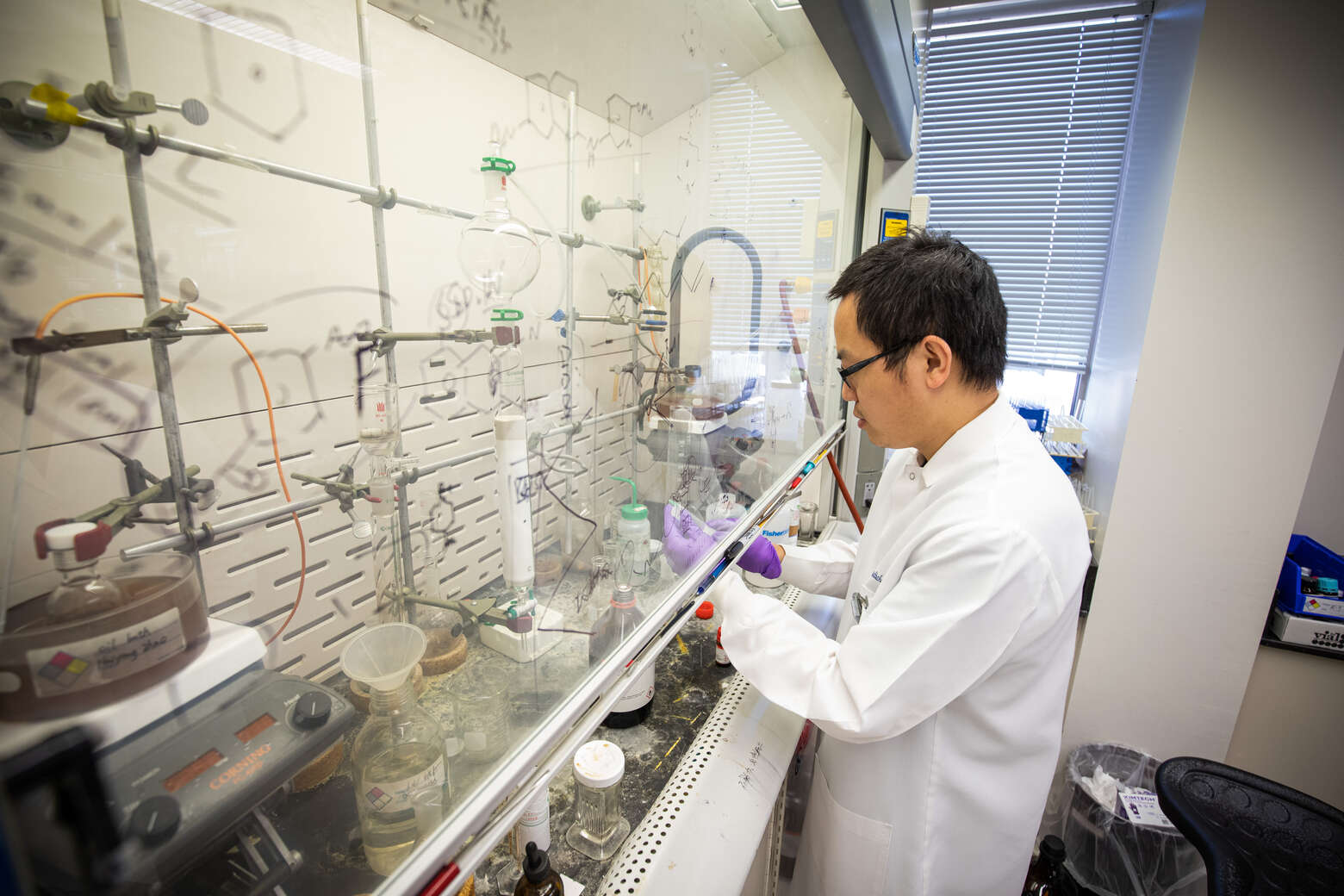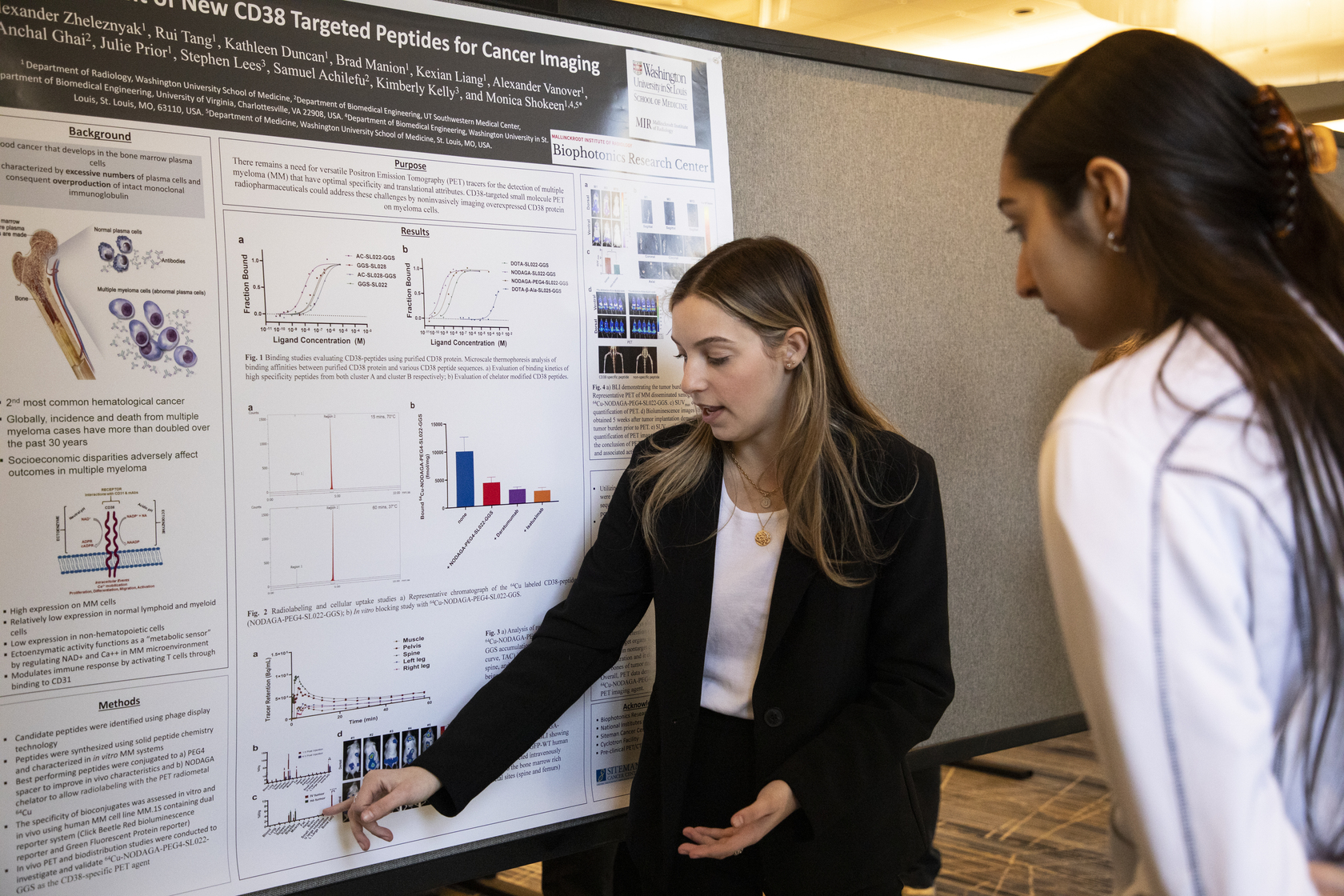Yablonskiy Lab Develops Novel MRI Method To Spot Alzheimer’s Damage

Dmitriy A. Yablonskiy, PhD, professor of radiology for Mallinckrodt Institute of Radiology (MIR) at Washington University School of Medicine in St. Louis, and colleagues have developed a new imaging method that could help diagnose Alzheimer’s disease before symptoms develop.
A mathematical analysis of the the Gradient Echo (qGRE) MRI technique developed in the Yablonskiy Lab showed that the novel MRI approach could find brain cell damage in people at the early stages of Alzheimer’s disease — before tissue shrinkage is visible on traditional MRI scans and before cognitive symptoms arise. While traditional MRI can show where damaged areas of the brain have decreased in volume, the qGRE technique can detect the loss of neurons that precedes brain shrinkage and cognitive decline.
“The technique takes only six minutes to acquire data and can be implemented on MRI scanners that are already used worldwide for patient diagnostics and clinical trials,” said Yablonskiy, who is also the study’s senior author. The study’s findings are available in the Journal of Alzheimer’s Disease.





